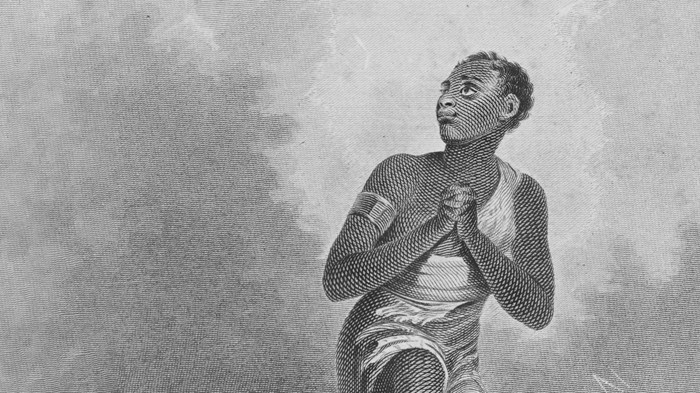
The first celebration of Juneteenth began at the same courthouse in Galveston, on the same date where, one year before, enslaved people in Texas learned that the war was over and they were now free. On these same steps, Union Major General Gordon Granger had read, “The people of Texas are informed that, in accordance with a proclamation from the Executive of the United States, all slaves are free. This involves an absolute equality of personal rights and rights of property between former masters and slaves. …” On this day, June 19, 1866, the Emancipation Proclamation was read out loud, and then those gathered progressed to Methodist Episcopal South (now Reedy Chapel AME Church) for a public prayer meeting.
While history did not record the prayers from this gathering, that the event itself happened was noteworthy. Public prayer meetings by African Americans were rare during slavery. Though independent African American churches in the South existed during the antebellum period, the majority of enslaved African Americans worshipped alongside the people who enslaved them. Slave owners on plantations and farms presided over church services that served their own oppressive purposes. While some enslaved people preached, their sermons sounded as degrading as those of white ministers: Obey your master, don’t steal food, and so on. Enslaved African Americans were keenly aware that this type of preaching was a sham, a mechanism to attempt to keep them docile and complacent in their positions as enslaved persons.
Enslaved African Americans, on the other hand, practiced their faith in organized secret meetings. At these “invisible institutions,” as renowned African American religious historian Albert J. Raboteau later called them, enslaved communities could sing their own songs, preach their own sermons, and pray their own prayers. These meetings were continual acts of resistance against slaveholders’ power and slaveholders’ belief that they had to use Christianity to make slaves obedient. These meetings also signified the lengths that enslaved people went to care for their own souls and the souls of their fellow yoked persons.
Anderson Edwards, a formerly enslaved preacher in Texas, had this to say about what slave masters expected from slave preachers, and how he ministered while away from the master’s watchful eye:
I been preachin’ the Gospel and farmin’ since slavery time. … When I starts preachin’ I couldn’t read or write and had to preach what massa told me and he say tell them n— iffen they obeys the massa they goes to Heaven, but I knowed there’s something better for them, but daren’t tell them ’cept on the sly. That I done lots. I tell ’em iffen they keeps prayin’ the Lord will set ’em free.
Another formerly enslaved man, Wash Wilson, remembered that when enslaved persons would begin to sing “Steal Away to Jesus,” it meant there would be a secret prayer meeting that night, as Raboteau recounts in Slave Religion. He recollected that “De masters … didn’t like dem ’ligious meetin’s, so us natcherly slips off at night, down in de bottoms or somewhere. Sometimes us sing and pray all night.”
These secret prayer meetings put enslaved people in danger. Slaveholders feared the prayers of the enslaved. Owners and overseers believed that enslaved people prayed against them, threatening enslaved African Americans with punishment if they were found attending and holding these prayer meetings. Still, enslaved people used prayer as a weapon to fight for their freedom, believing that God, in his grace, mercy, and kind providence, would deliver them from bondage.
Those prayers continued after the joy of the inaugural Juneteenth gave way to the horror of Jim Crow. In 1900, Reformed pastor and lifelong advocate of African American rights Francis Grimké implored his congregation to pray “to overcome the evil that is in us, to break the fetters of sin … and make us freemen indeed.”
Grimké also encouraged his African American flock to pray for racial progress: “Pray?” he preached from the pulpit of Washington, DC’s Fifteenth Street Presbyterian Church. “Yes, let us pray without ceasing, that God would not only help us to build ourselves up in the great and positive elements that go to make up a true manhood and womanhood, but also that he would help us with his own great might to resist with all the energy of our natures this things which stand in the way of our progress.”
Grimké also implored his congregation “to pray for those oppressing us.” In particular, he directed his church “to pray that God would have mercy upon them; that he would open their blind eyes, that he would show them the error of their ways … and lead them to conform to principles of right, of justice and humanity.” These exhortations exuded the spirit of Juneteenth prayers.
It should be no surprise that this fervent prayer tradition was central to the civil rights movement of the 1950s and 1960s. Coretta Scott King recalled a prayer by her husband, Martin Luther King Jr., during a particularly rough stretch of the Montgomery bus boycott. One night he received a threatening phone call. Upset, he entered his kitchen and prayed, “Lord, I am taking a stand for what I believe is right. The people are looking to me for leadership, and if I stand before them without strength and courage, they will falter. I am at the end of my powers. I have nothing left. I have nothing left. I have come to the point where I can’t face it alone.” She later wrote in Standing in the Need of Prayer: A Celebration of Black Prayer that “when Martin stood up from the table, he was imbued with a new sense of confidence, and he was ready to face anything.”
In his book Juneteenth: A Celebration of Freedom, Charles Taylor includes a “Traditional Juneteenth Prayer.” The prayer is in the style of African American prayer—stylish, poetic, rich in biblical imagery. It opens with familiar words to any person who grew up in an African American church: “Father, I stretch my hand to thee—for no other help I know. Oh, my rose of Sharon, my shelter in the time of storm. My prince of peace, my hope in this harsh land. I bow before you this morning to thank you for watching over us and taking care of us. This morning you touched us and brought us out of the land of slumber, gave us another day—thank you Jesus.” The prayer ends with a ring of the ultimate freedom that lay ahead for every believer, contextualized within African American trial and tribulation:
When I come down to the river of Jordan, hold the river still and let your servant cross over during a calm down. Father, I’ll be looking for that land where Job said the wicked would cease from troubling us and our weary souls would be at rest; over there where a thousand years is but a day in eternity, where I’ll meet with loved ones and where I can sing praises to thee, and I can say with the saints of old, “Free at last, free at last, thank God almighty, I am free at last.” Your servant’s prayer for Christ sake. Amen!
Today, on Juneteenth, the traditional prayer service consists of prayers for the future. This makes sense. In 1865 and 1866, the new freed people likely had unclear notions about the meaning of freedom. It is no mystery that those had prayed for freedom would now pray for their future in freedom.
In recent decades, churches have developed special Juneteenth liturgies. Some of these services draw from the African American Lectionary, where theologian J. Kameron Carter writes,
Juneteenth invites us to reflect upon the fact that during the two-and-a-half-year period between Emancipation Day and Juneteenth, there were still some people of color, people of African descent in the United States, who were still in bondage. They were still functioning as slaves, though legally they were free. Juneteenth, then, was for them a delayed celebration, a delayed enforcement of freedom. It represented a lagging liberation. This time lag of liberation is a metaphor of what it means to exist in the in-between of freedom, in freedom’s now-but-not-yet. In other words, Juneteenth points to the fact that liberation is not a one-time event. It is an ongoing project beckoning us to write the vision of freedom and issue renewed proclamations of “freedom now.” Juneteenth signifies the fact that freedom and liberation is both behind and ahead of us.
In this long moment of anti-black racism that has manifested itself in the killing of Ahmaud Arbery, and the long list of unarmed African Americans killed unjustifiably by police officers, including Eric Garner, Oscar Grant, Alton Sterling, George Floyd, and Breonna Taylor, Juneteenth is a commemoration of African American suffering and overcoming. It is a recognition that the prayers of the suffering and the oppressed can be answered, even if it ultimately takes centuries.
Eric Michael Washington, PhD, is associate professor of history and director of African and African diaspora studies at Calvin University, Grand Rapids, Michigan.

Support Our Work
Subscribe to CT for less than $4.25/month




























